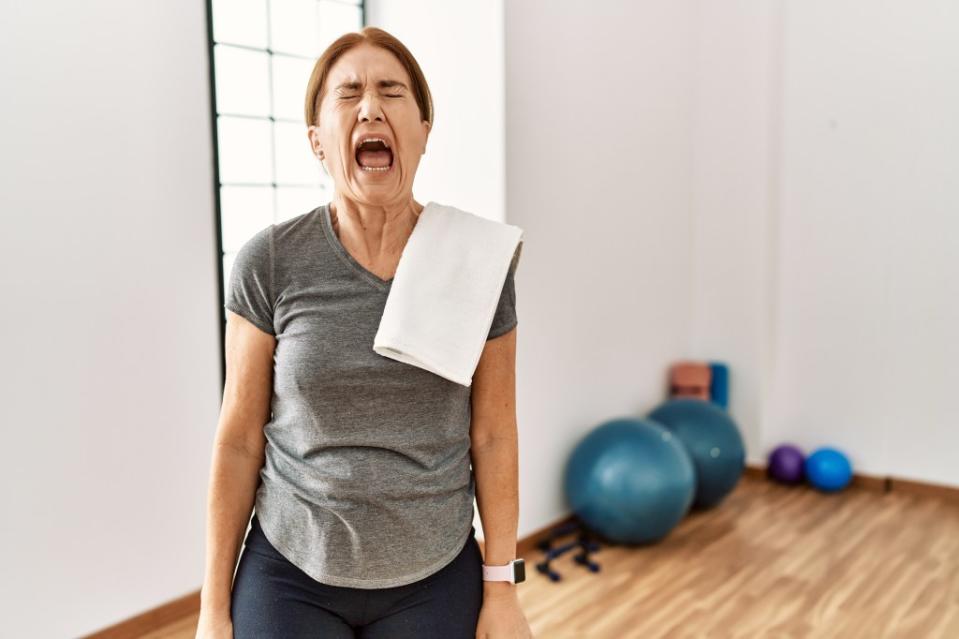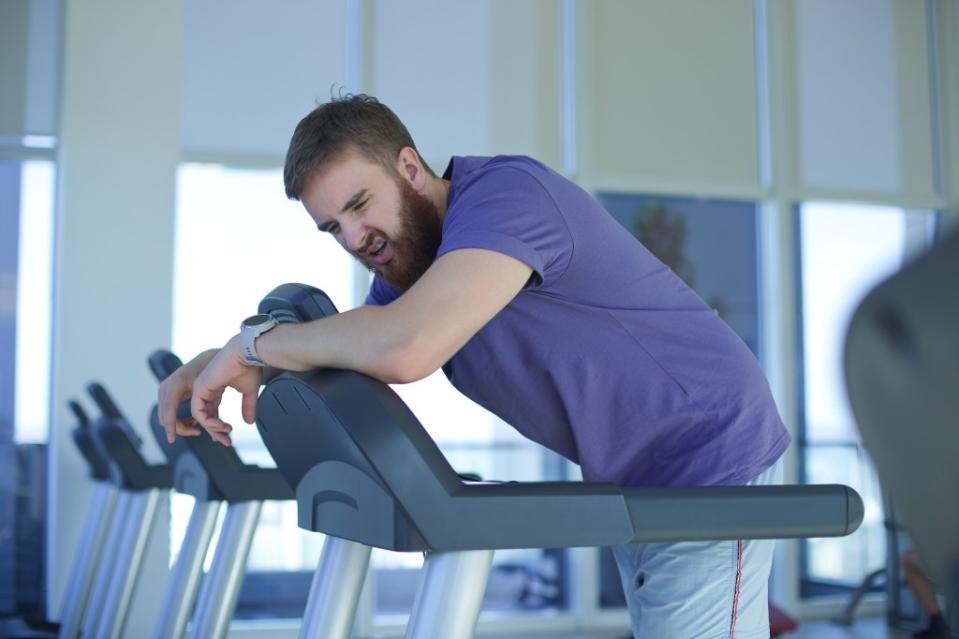Crying at the gym is completely normal — and could benefit you

Some people put blood, sweat, and tears into their workouts — emphasis on tears.
If you’ve ever found yourself crying at the gym, you’re not alone — and experts are sharing the reasons why.
Stress
If someone is experiencing stress or going through a difficult period, an emotional release may happen during a workout.
“It’s a very normal thing if you’re in a time of stress — it could be anything: family stress, work stress, changes in a [romantic] relationship,” Brad Foltz, a sports psychologist at Ohio State University Wexner Medical Center, explained to Health this week.
“Having an emotional response during exercise isn’t a bad thing,” he added.

The gym is where people can have their “me time” away from distractions.
“[Working out] at the gym, you don’t have your phone, kids, or job to distract you. Because you’re eliminating those distractions, it can open up space in your brain to focus on emotions,” Foltz reasoned.
The body also tends to hold repressed emotions — and a workout could bring these difficult feelings to the surface.
“The idea [is] that our body is releasing a bunch of pent-up tension and emotion that we’ve been holding on to — internalizing — to make it through the other day-to-day parts of our lives,” Foltz said. “Then, when we exert ourselves through exercise, we lose some of the ability to keep it all ‘stuffed in.’ “

Happiness
Not only does working out release pent-up feelings, but it also produces endorphins that can lead to happy tears.
Endorphins are hormones released by the body during pleasurable experiences like exercise, massage, eating, or sex, and uncomfortable ones that involve pain or stress.
Several studies have found that exercise can improve mood and lower stress, which could make some gymgoers cry with happiness.
“Simply working out, or finishing a workout, can lead to a great deal of pride and satisfaction in the task,” Matthew Sacco, a sports psychologist at Cleveland Clinic, told Health.
“For some, this sense of pride and esteem has not been readily accessible throughout day-to-day life, [and] feeling proud of oneself can be a strange experience for some people and result in an outpouring of emotions,” he added.

Fatigue
Being tired during a particularly intense workout session could also cue the waterworks.
“When your body gets tired or your mind gets tired, then you start to be compromised, and you start to feel different sorts of emotions, good and bad,” Janine Delaney, a psychologist and fitness expert, told Well + Good.
“It’s OK to feel that way, but you don’t want to turn that into something negative and then leave your workout in a slump because it brought on all these emotions,” Delaney continued.
Benefits of crying
Crying releases endorphins as well as the other feel-good hormone, oxytocin. Crying also soothes the body by activating the parasympathetic nervous system, according to a 2014 study, and acts as a pain reliever and mood enhancer.
Emotional tears contain stress hormones — and shedding some can provide stress relief.
However, if you find yourself crying very often, it could be a symptom of anxiety or depression, and you may want to seek help from a mental health professional.

